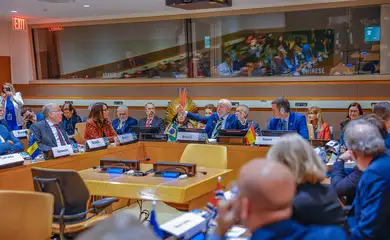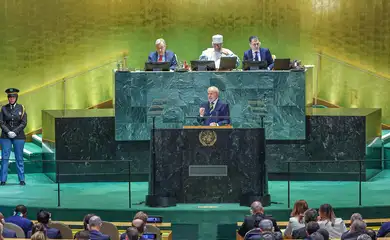Lula signs law to expand production of sustainable fuels

On Tuesday (Oct. 8), President Luiz Inácio Lula da Silva signed the Fuel for the Future Law, aimed at promoting the production and use of sustainable fuels. The law establishes national programs for green diesel, sustainable aviation fuel, and biomethane, while also increasing the ethanol blend in gasoline and the biodiesel blend in diesel.

The law stipulates that the ethanol blend in gasoline will increase from a minimum of 22 percent to 27 percent, with the potential to reach up to 35 percent. Currently, the blend can go as high as 27.5 percent, with a minimum ethanol content of 18 percent. The Minister of Mines and Energy, Alexandre Silveira, highlighted the investments that will be made in ethanol production as a result of the new law.
"We're going to increase the blend of ethanol in gasoline. This strengthens the ethanol chain that began 40 years ago and was boosted in the 2000s with the introduction of flex-fuel vehicles. We will be able to increase the ethanol blend from E27 to 35 percent. This expansion will enhance national production from the current 35 billion liters to 50 billion liters per year. This translates to more than BRL 40 billion in new investments and BRL 25 billion for sugarcane plantations, more cornfields, and transportation. It's the second generation of ethanol," said Silveira.
The minister stated that the Fuel for the Future Law is expected to generate over BRL 260 billion in investments in agriculture and the biofuels sector.
Programs
The law establishes three programs aimed at promoting research, production, marketing, and use of biofuels to facilitate the decarbonization of the transportation and mobility sectors.
The first initiative is the National Sustainable Aviation Fuel Program (ProBioQAV), which mandates that, starting in 2027, airline operators must reduce greenhouse gas emissions from domestic flights by utilizing sustainable aviation fuel (SAF). The reduction targets will begin at 1 percent and progressively rise to 10 percent by 2037.
The National Green Diesel Program (PNDV) stipulates that the National Energy Policy Council (CNPE) will set the minimum annual volume of green diesel to be blended with fossil diesel.
Lastly, the National Program for Decarbonizing Natural Gas Producers and Importers and Promoting Biomethane aims to enhance research, production, marketing, and utilization of biomethane and biogas within Brazil's energy matrix. The CNPE will establish annual targets for reducing greenhouse gas emissions in the natural gas sector through biomethane use, starting in January 2026, with an initial target of 1 percent and a maximum of 10 percent.
Speech
In his speech, Lula highlighted the importance of the law as an example of Brazil's economic potential. “The sanctioning of this law is a demonstration that none of us has the right to doubt that the country can be a great economy. Because this country has everything to grow. What [the country] needs is leaders that aligns with the aspirations of the Brazilian people.”
The president also stated that Brazil is respected internationally for its initiatives in clean energy production and that now is the moment to reap the benefits of the policies implemented since the beginning of his administration.




